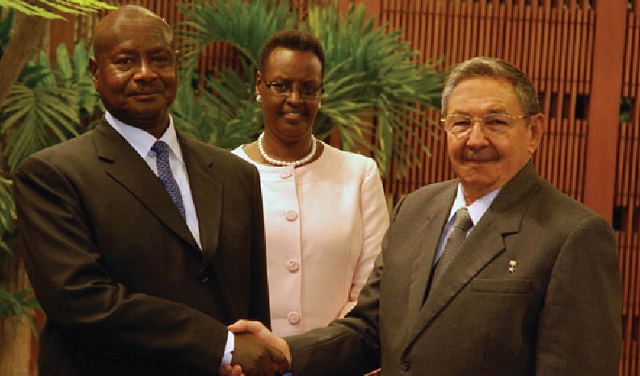
Castrol reportedly pulled Museveni and gave him the bad news: Of the 60 soldiers Museveni had sent to Cuba for training, 18 had the AIDS causing virus HIV.
“ I am worried it might reflect the level of prevalence in the general population of your country,” Castrol warned Museveni. And he was right.
In another anecdote, the head of Sports Science at Gulu University then hatched a plan to get rid of the Cubans there. It started because the Cuban were highly trained and effective and were overshadowing Ugandans. So the Ugandan boss wrote a report recommending they be removed. When he called them to inform them of the decision they demanded to know why.
“It is because you cannot speak English,” he told them. They were shocked. “But we are speaking English to you right now,” they said. “No,” the Ugandan boss insisted, “you do not speak English”. The story shows how carefully regimented Cuba’s export of its doctors is. The book explains that Cuban health workers act as state-to-state envoys. That is their ideological mission. In Venezuela, for example, Cuba deployed 20,000 of them under a `doctors-for-oil’ deal. But sometimes they come under purely service provision collaboration. That appears to be the case in Uganda.
According to a report by Bill Frist who covers global healthcare and reforms in the influential business magazine Forbes, the Cuban government reportedly earns $8 billion a year in revenues from professional services carried out by its doctors and nurses in 100 countries. Approximately 37,000 Cuban nationals work under the programme. The government collects a portion of the money the doctors earn abroad.
In one example, from 2013, the Cuban government entered a deal with the Brazilian Health Ministry to send 4,000 Cuban doctors to underserved regions of Brazil for as much as $270 million a year. The programme was so successful that in one year, the number of Cuban health workers in Brazil had swollen to 11,429. Of course Cuba was earning even more money.
Cuban health workers have perfected the art of serving in the most remote areas of the most impoverished foreign countries. Their specialty is primary health care and emergencies.
Currently, for example, they are not headed to only Uganda in the east Africa region. About 110 Cuban health workers are expected to land in Kenya by July. While 100 will be involved in provision of primary healthcare, the 10 are experts in tackling malaria emergencies.
Medics fight back
The Uganda government is importing 200 Cuban doctors to be deployed in hospitals across the country. The first batch of 40 specialists will be deployed in regional referral hospitals.
Sarah Opendi, the Minister of State for Health (General Duties), and Public Service Minister Muruli Mukasa told parliament that the Cubans are coming to boost health services and would be paid $1500.
The move is being fought.
“If resident doctors have not been valued, what impact will the Cubans create in a broken health system? Will they come with their equipment, housing facilities, electricity, water and much more?” a protester wrote on a Whatsapp group.
 The Independent Uganda: You get the Truth we Pay the Price
The Independent Uganda: You get the Truth we Pay the Price


